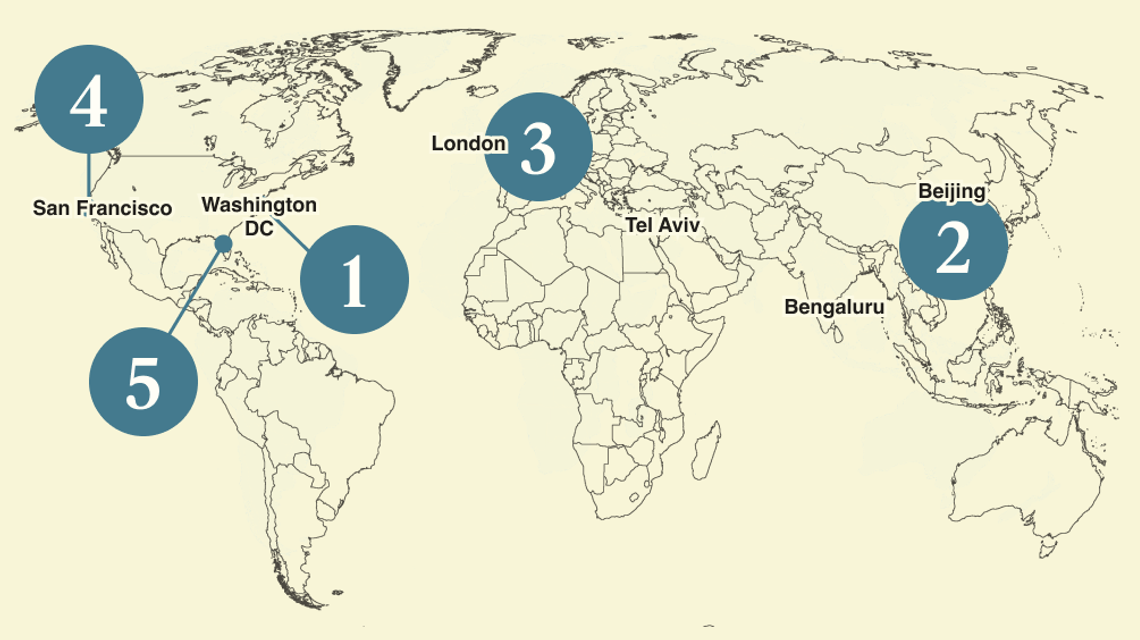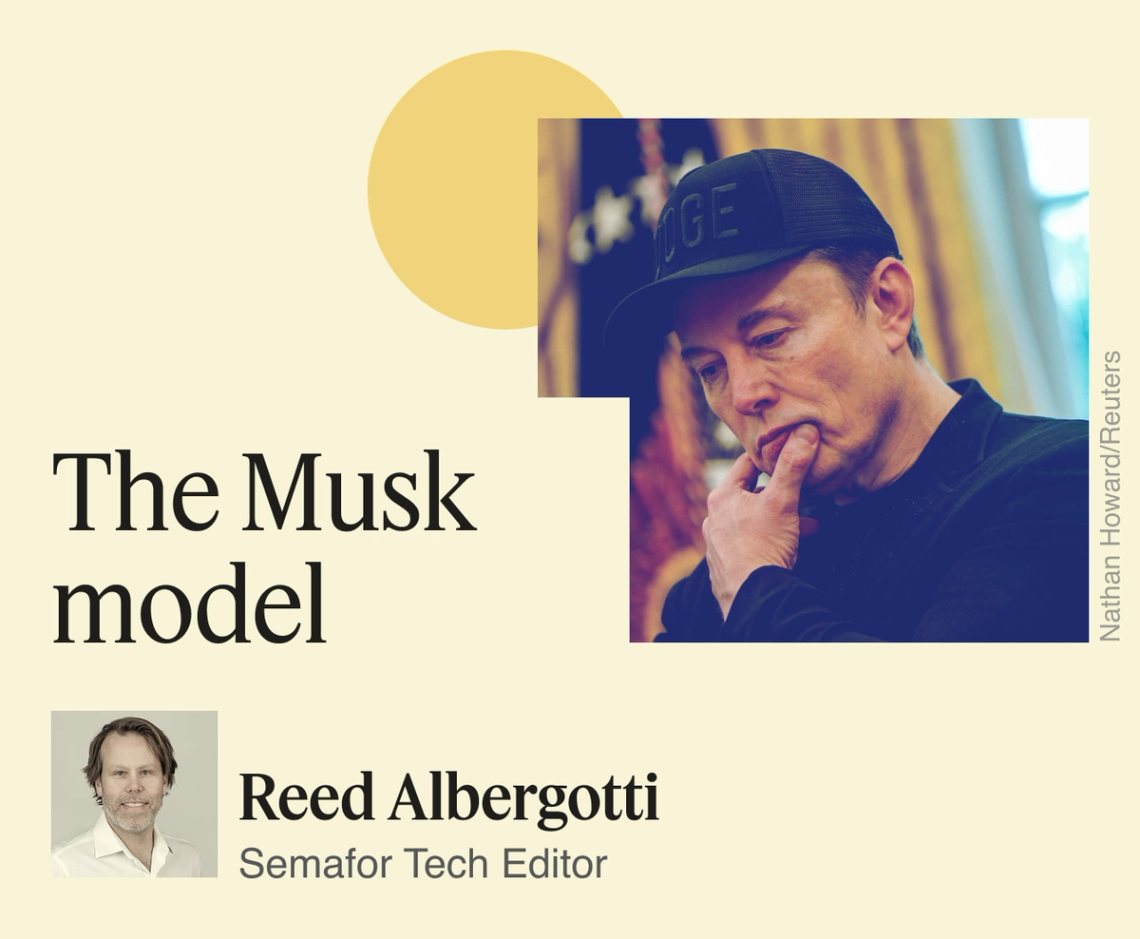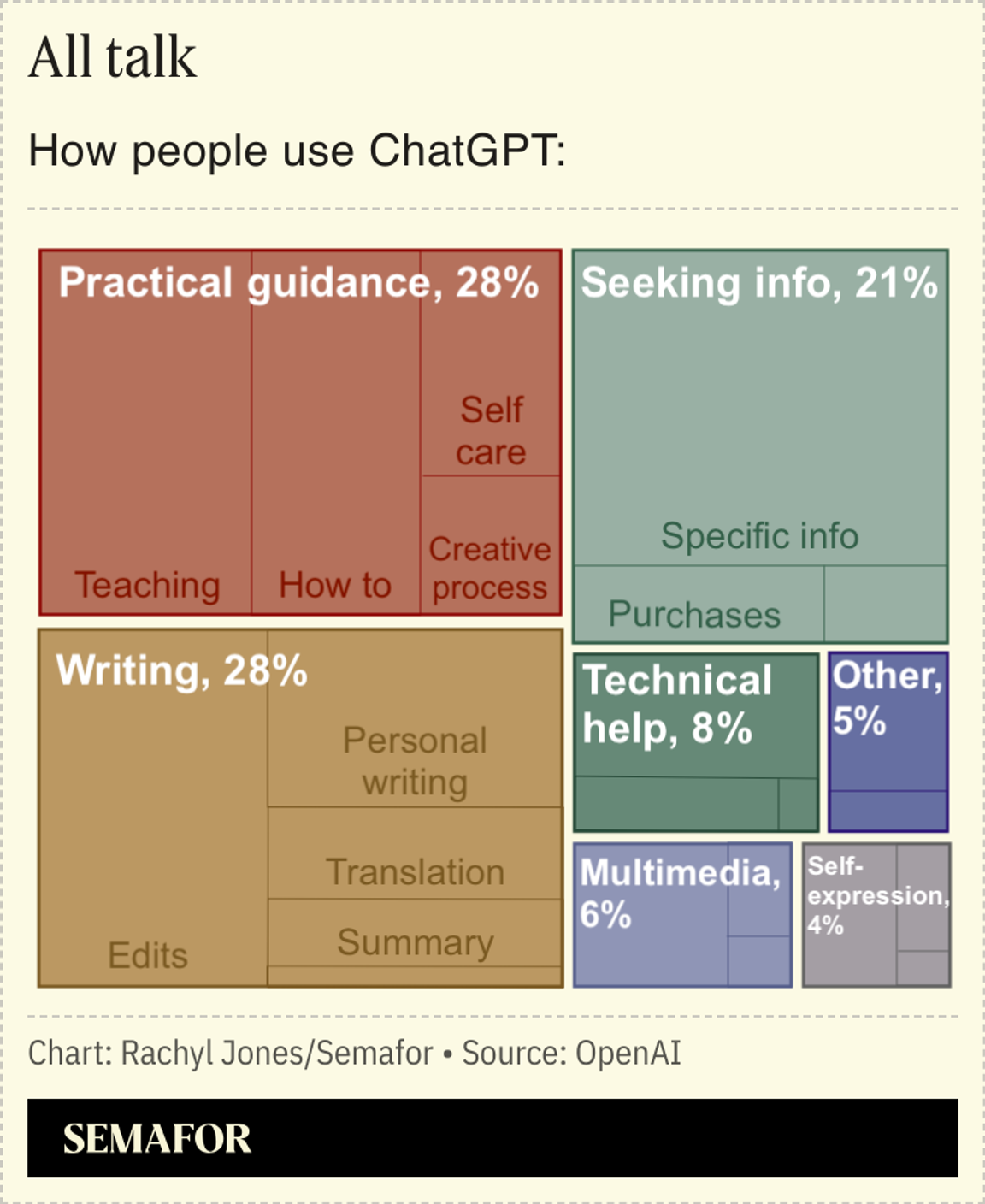| | In this edition, why other corporate boards should consider applying Musk’s high-stakes pay package,͏ ͏ ͏ ͏ ͏ ͏ |
| |  | Technology |  |
| |
|
 - Anthropic’s government problem
- TikTok solution?
- Microsoft’s $30B UK bet
- How people use AI
- Space bulls, AI bears
 Why more CEOs should get pay packages like Musk’s, and a genetic engineering company is bringing the dodo back. |
|
 Elon Musk’s pay package — roughly $1 trillion in Tesla shares if he hits otherworldly milestones over the next decade — has become the subject of intense debate. But while 13 figures may be a bit high, the compensation is different in one important way from most public company leaders: It’s linked to the long term. Most public company CEOs are compensated on short-term metrics, a well-documented problem. And compensation for chief executives, which has skyrocketed in recent decades, rewards failure in addition to success. By contrast, if Musk fails, he walks away practically empty-handed. Bigger rewards for real, long-term success and severe disincentives for failure make more sense. Obviously, risk inherently leads to a higher chance of failure, and we don’t want half the S&P to go “founder mode.” At the moment, however, a small handful of more “startup-like” tech companies are creating most of the gains in value in the S&P 500 and other markets. As Tesla Chair Robyn Denholm told us in an interview earlier this week, there is only one Musk. But if we could have more public company CEOs with even a fraction of the long-term ambition, it might be good for the American economy. |
|
Anthropic irks White House |
 Chance Yeh/Getty Images for HubSpot Chance Yeh/Getty Images for HubSpotAnthropic is in the midst of a splashy media tour in Washington, but its refusal to allow its models to be used for some law enforcement purposes has deepened hostility to the company inside the Trump administration, two senior officials told Semafor. Anthropic recently declined requests by contractors working with federal law enforcement agencies because the company refuses to make an exception allowing its AI tools to be used for some tasks, including surveillance of US citizens, said the officials, who spoke to Semafor on the condition of anonymity. The tensions come at a moment when President Donald Trump’s White House has championed American AI companies as patriotic bulwarks of global competition — and expect the companies to repay that loyalty. The officials said they worried that Anthropic was selectively enforcing its policies based on politics and using vague terminology to allow its rules to be interpreted broadly. For instance, Anthropic currently limits how the FBI, Secret Service, and Immigration and Customs Enforcement can use its AI models because those agencies conduct surveillance, which is prohibited by Anthropic’s usage policy. Anthropic declined to comment. |
|
 Amr Abdallah Dalsh/Reuters Amr Abdallah Dalsh/ReutersThere may finally be light at the end of the tunnel for TikTok. To address the Trump administration’s national security concerns, Oracle, Silver Lake, and Andreessen Horowitz could join an investor group that would control the platform’s US business, which would be housed in a new company, The Wall Street Journal reported. Its secret sauce — the recommendation algorithms that keep users engaged — would still come from current Chinese owner ByteDance through a licensing deal. Talks are ongoing, with a goal of finalizing the arrangement in time for a potential meeting between Trump and Xi Jinping later this year. While pressure may ease on TikTok, it’s building for Nvidia, which was accused of violating antitrust laws by the Chinese government. And companies there have been banned from buying the chipmaker’s AI products, the Financial Times reported, just two months after CEO Jensen Huang was feted in Beijing. |
|
Big Tech’s billion-dollar vows to the UK |
 President Donald Trump meeting British Prime Minister Keir Starmer in July 2025. Evelyn Hockstein/File Photo/Reuters. President Donald Trump meeting British Prime Minister Keir Starmer in July 2025. Evelyn Hockstein/File Photo/Reuters.Microsoft announced a planned $30 billion investment in the UK Tuesday, part of an overall $42 billion “tech prosperity deal” between the US and the UK. The Microsoft investment includes the construction of what will be the country’s largest data center, with 23,000 processors meant for handling artificial intelligence workloads. The move, which came on the eve of Trump’s state visit to the country, included investments from Nvidia, OpenAI, and Google’s DeepMind. It also highlights how major tech industry investments are increasingly tied to US politics and revolve around the Trump administration. |
|
OpenAI, Anthropic usage data shows economic divide |
Anthropic and OpenAI this week released some of the most in-depth reports to date on global AI usage, adding fresh data to the worldwide debate over the technology’s economic impact and testing the companies’ own predictions. Computer and mathematical tasks, like coding assistance, dominate Claude’s usage at 36%, while that accounts for less than 8% of total ChatGPT usage. OpenAI’s models, meanwhile, act most prominently as a Google search engine, with 18% of queries involving users seeking specific information. Teaching and writing help are also common on ChatGPT— tasks gaining popularity for Claude users since the start of the year.  “This widening adoption underscores our belief that access to AI should be treated as a basic right—a technology that people can access to unlock their potential and shape their own future,” OpenAI said in a blog post. Anthropic hasn’t gone as far as to say AI should be a “basic right,” but its data points to concentrated usage among high-income nations and knowledge centers, which suggests AI could become an economic divider. The US dominates Claude usage, specifically in California, New York, and Virginia. Tech-focused countries like Israel and Singapore also see strong uptake relative to their working-age populations. “It takes time for transformative technology to reach everyone, and AI is no different,” Anthropic said in its report. |
|
Space won more Americans in ’65 than AI now |
A new Gallup survey found that just 15% of Americans are confident the US will have the most advanced AI in a decade, as the country pushes ahead on technological advancements in competition with China.  One of the last times US national priorities aligned so closely with the tech sector was during the space race with Russia six decades ago. Back then, nearly half of Americans felt the US was ahead of Russia. While there are many generational, political, and economic factors separating 1965 from today, the more promising read on space captured a level of optimism that isn’t as prominent in the AI age. |
|
 Colossal’s gene-edited chickens carrying edited PGCs. Courtesy of Colossal. Colossal’s gene-edited chickens carrying edited PGCs. Courtesy of Colossal.One step closer to the dodo. The latest development out of Colossal Biosciences — the genetic engineering company trying to bring animals back from extinction that Semafor has covered before — is that it has successfully grown pigeon primordial germ cells, or cells that become sperm or eggs, the company announced Wednesday. It is a historic step in bringing the dodo bird, extinct for more than 360 years, back to life. Scientists tested more than 300 combinations of growth factors, small molecules, and metabolites to develop the cells of Nicobar pigeons, the closest relative to the dodo. The Colossal team will then inject those cells, which have been growing for two months, into baby genetically edited chickens with the hope they will lay pigeon eggs. The process could hatch relatives of the dodo, setting the stage to bring back the dodo itself. The news follows the successful births in April of two dire wolves, extinct for 10,000 years. On Wednesday, Colossal also announced an additional $120 million in funding, bringing its valuation to $10.3 billion. |
|
| |